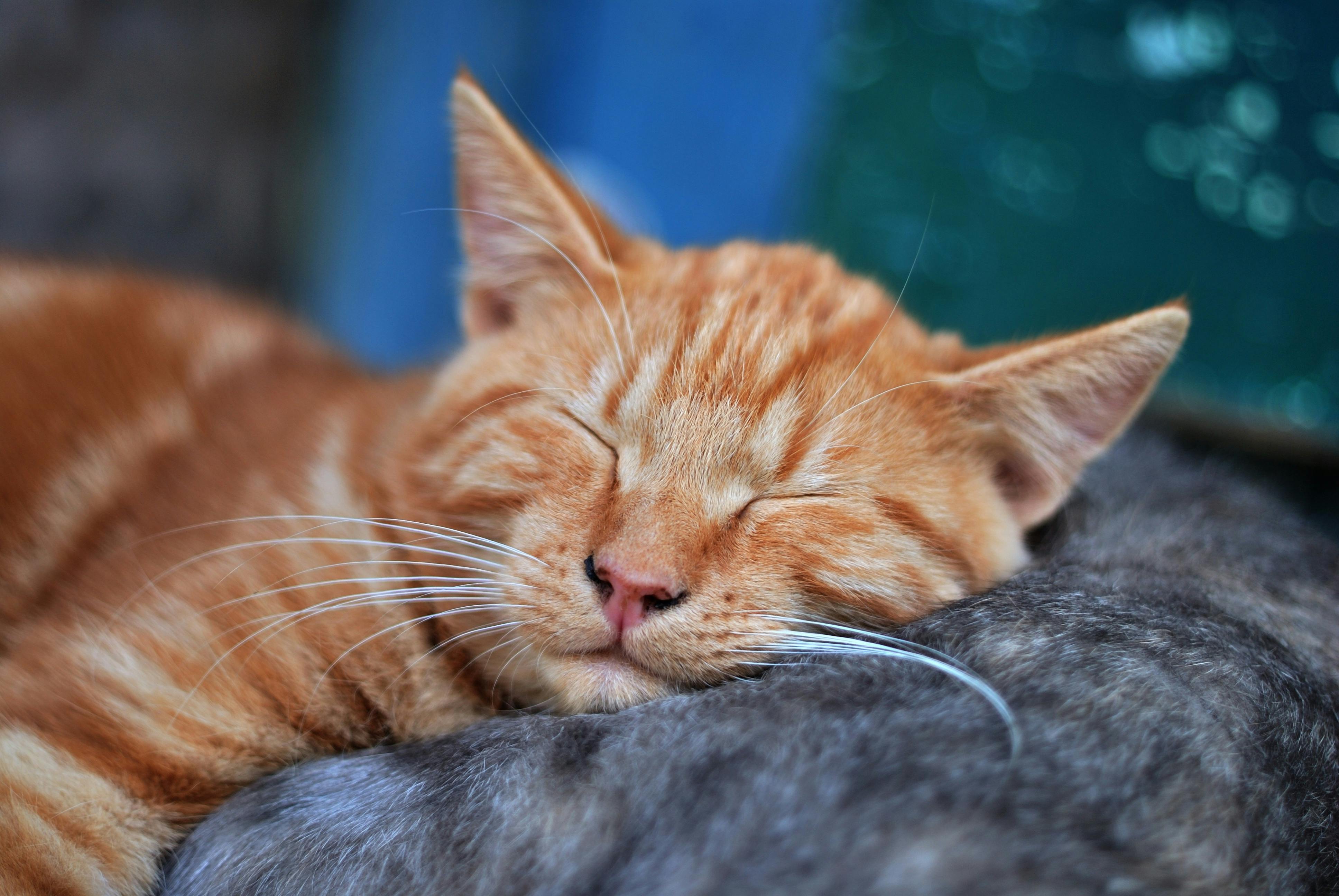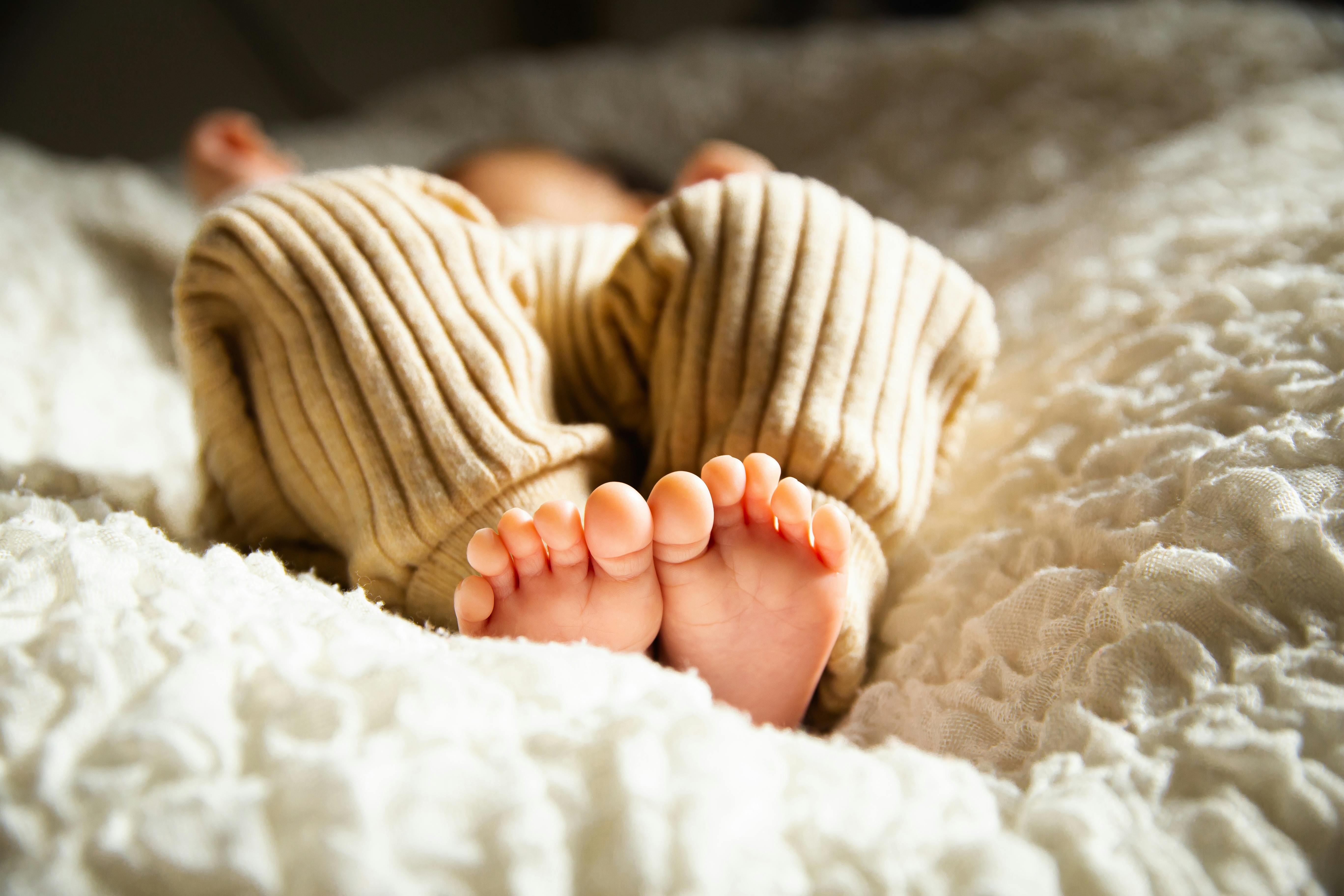Have you ever been woken up by the sound of your baby moaning in their sleep? It can be quite a worrying experience, especially if it’s coupled with tears and distress. But don’t worry, your baby’s moans are perfectly normal and usually nothing to be concerned about. In this article, we’ll explore why babies moan in their sleep and what you can do to ensure your little one gets a good night’s rest.Babies may moan in their sleep for various reasons. One possible explanation is that it is normal for babies to make noises while they are dreaming, and the noise may be a sign that the baby is having a pleasant dream. Another possible explanation is that the baby could be experiencing some physical discomfort, such as gas or an uncomfortable position, and the moaning is a sign of distress or pain. Finally, it could be a sign of teething pain, since babies often moan when they are teething.
Is Moaning in Babies’ Sleep Normal?
Many parents are concerned when they hear their baby moaning in their sleep. Although it can be a worrying sound, it is usually quite normal and does not indicate any cause for concern. Moaning during sleep is actually quite common in babies and young children, and can be seen as a sign of normal development.
When babies moan, it doesn’t necessarily mean they are having a bad dream. It can be the result of simple dreams, or just a sign that they are transitioning between different stages of sleep. Babies may also moan if they are experiencing discomfort or pain due to teething or an illness, but this is usually accompanied by other signs such as fussiness or crying.
In some cases, moaning can be a sign of an underlying medical condition such as night terrors or sleep apnea. If your baby’s moaning persists for more than a few days, it may be worth talking to your pediatrician to rule out any underlying medical issues.
Overall, moaning in babies’ sleep is usually nothing to worry about and should not cause undue concern for parents. However, if the behavior persists for more than a few days, it may be worth seeking further medical advice from your pediatrician just to be on the safe side.
Common Reasons Why Babies Moan During Sleep
Babies moan during sleep for a variety of reasons. It is important to understand the possible causes in order to best help your little one get the restful sleep they need. Here are some of the most common reasons why babies moan during sleep:
1. Hunger and thirst: Babies can wake up during the night when they get hungry or thirsty. If your baby is moaning during sleep, they may be hungry or thirsty and need a snack to help them go back to sleep.
2. Teething: Teething can cause significant discomfort and pain in babies, resulting in them moaning while asleep. To ease teething discomfort, you can provide your baby with a teether or cold washcloth to chew on.
3. Being too hot or cold: Babies can become uncomfortable if their environment is too hot or cold, which can lead to moaning during sleep. Make sure you dress your baby appropriately for the temperature of the room and check that their bedding is not too thick or thin for comfort.
4. Gas: Gas can cause babies to moan while asleep as it causes them discomfort. You can help relieve gas by burping your baby often during feedings and then putting them down on their back for a nap or bedtime routine after feeding has been completed.
5. Needing comfort: If your baby moans during sleep, it could be because they simply need a little extra comfort to feel secure and settle into slumber again. Try soothing them with gentle patting, singing lullabies, or even giving them a hug until they drift off again into peaceful slumber.
Understanding why babies moan during sleep is an important step towards helping them get quality rest that they need for healthy development and growth. If you are concerned about any prolonged moaning from your little one, consult with your pediatrician for further advice and support.
How to Calm a Baby Who’s Moaning During Sleep
It can be very worrying to hear your baby moaning during sleep. It can be difficult to determine what is causing the distress, and it is essential to respond quickly in order to comfort your baby and help them get back to sleep. Here are some tips on how to calm a baby who’s moaning during sleep.
The first step is to observe. If your baby is moaning, crying or making other noises while asleep, take a few moments to observe them and see if you can identify the cause of their discomfort. This could be a wet diaper, hunger, being too hot or cold, or even something like teething pain.
Once you have identified the cause, you can take appropriate action such as changing the diaper, feeding them or adjusting the temperature of the room. If they are still uncomfortable after you have addressed the issue, try gently rocking them or singing a lullaby. You can also try gentle massage techniques such as rubbing their back or head.
It is important to be consistent in your response when comforting your baby during sleep disturbances. This helps them learn that if they make noises during sleep, you will be there for them and provide comfort and reassurance when they need it most.
Finally, ensure that your baby has all their needs met before going bed. This means ensuring that they are well-fed and have had enough time for playtime and relaxation before bedtime so that they don’t wake up feeling restless or uncomfortable during the night.
Following these tips will help you calm a baby who’s moaning during sleep and restore peace in your home at nighttime!
Moaning in Babies’ Sleep
It is not uncommon for babies to moan and groan in their sleep. This can be a normal part of their sleep cycle, but it can also be a sign of something more serious. Parents should pay close attention to their baby’s sleeping patterns and any changes that occur. If the moaning persists or appears to be linked to other signs of distress, it may be time to speak with a pediatrician.
Moaning in babies’ sleep is usually nothing to worry about, as newborns are still learning how to regulate their body temperature and breathing during sleep. They may make noises as they transition between different stages of sleep, such as light sleeping and deep sleeping. This type of moaning can be accompanied by body movements like twitching or jerking, which is also normal.
However, if the moaning persists for an extended period of time or appears to be connected with other signs of discomfort, it could indicate a more serious condition. It is important for parents to keep an eye on their baby’s sleeping patterns and look out for any changes that could signal a problem. Other symptoms that warrant further investigation include excessive fussiness during the day, difficulty feeding or sleeping, and frequent waking during the night.
If you suspect that your baby’s moans may indicate an underlying issue, it is best to speak with your pediatrician as soon as possible. He or she will be able to determine whether any further examination is needed and provide guidance on how best to manage the situation. In some cases, additional tests may be recommended in order to rule out more serious conditions such as seizures or respiratory problems.
In conclusion, while moaning in babies’ sleep is often completely normal and nothing to worry about, persistent moaning accompanied by other signs of distress should not be ignored. If you have any concerns about your baby’s sleeping patterns or behavior, don’t hesitate to contact your pediatrician for advice and guidance.

Can Babies Cry and Moan In Their Sleep?
Crying and moaning in sleep is a normal occurrence for babies, even when they are content and well-rested. It’s not uncommon for a baby to cry or moan during sleep, especially during the newborn stage. While it can be concerning for parents, it’s usually nothing to worry about. Babies are still learning how to regulate their emotions and may express them in their sleep.
It’s important to distinguish between crying and moaning during sleep. Crying is often very loud and sudden, while moaning is quieter and more drawn out. Crying usually indicates distress or discomfort, while moaning may simply be a sound of contentment.
In many cases, babies will cry or moan in their sleep due to physical discomfort such as hunger, wet diapers, or being too hot or cold. If your baby wakes up crying or moaning often, make sure to check for any signs of physical discomfort that could be causing the issue.
Babies may also cry or moan in their sleep due to emotional factors such as being overtired from lack of sleep, feeling anxious or overwhelmed by stimuli in the environment such as loud noises or bright lights. Make sure your baby has a good bedtime routine with plenty of time set aside for restful sleep each night.
If your baby continues to cry or moan in their sleep despite being well-rested and comfortable physically, it may help to talk softly and provide reassurance that you’re there for them. This can help soothe them back into a peaceful slumber without having to fully wake them up.
All in all, crying and moaning in sleep are normal occurrences for babies that are usually nothing to worry about. However, if your baby continues to struggle with sleeping through the night despite trying different methods of comfort, it’s important to consult your pediatrician about further steps you can take.
Comforting a Baby Who is Moaning In Their Sleep
It can be worrying to hear your baby moaning in their sleep, but there are things you can do to help them feel more comfortable. Here are some tips to keep in mind when comforting a baby who is moaning in their sleep:
The first step is to try and determine why your baby is moaning. If they’re experiencing discomfort due to teething or an ear infection, you may need to consult a doctor. If the moaning seems like it’s related to hunger or thirst, try offering them something to eat or drink.
If the cause of the moaning isn’t immediately apparent, then try gently rocking your baby or singing a lullaby. You may find that these small gestures help calm them down and provide some comfort.
Another way of soothing a baby who is moaning in their sleep is with touch. Try lightly rubbing their back, arms, or legs while speaking softly and reassuringly. This gentle contact can help your baby relax and drift back off into a peaceful sleep.
Sometimes noise can be unsettling for babies who are trying to fall asleep, so it might help if you create a peaceful environment for them to rest in. Dim the lights, turn off any screens, and ensure that other noise levels are kept low.
Finally, if nothing else works then you may need to take your baby out of their crib and hold them close until they drift off again. This closeness can provide reassurance and comfort that will help them get back into a deep sleep quickly and peacefully.
Is It Normal for Babies to Make Noises In Their Sleep?
It is quite common for babies to make noises while sleeping. This is a normal part of their development and should not cause any alarm. Babies may grunt, coo, or even cry during their sleep, and this is usually nothing to worry about. It is important to remember that babies are still learning how to regulate their breathing and body temperature while they sleep, so it is normal for them to make some noises.
If your baby’s noises seem too loud or persistent, it may be an indication that they are uncomfortable or in pain. In this case, you should check on your baby and see if there is anything that could be causing them distress. If you are unable to determine the source of the noise or if your baby continues to make noises even after being comforted, then it may be best to consult with a doctor.
It can also be helpful to monitor your baby’s sleep patterns and ensure that they are getting enough rest. If your baby seems restless during the night or finds it difficult to settle down, then it could be a sign that they are overtired or not getting enough restful sleep. Creating a consistent nighttime routine can help increase the amount of quality sleep your baby gets each night and reduce the amount of noise they make while sleeping.
In summary, it is normal for babies to make some noises during their sleep as they learn how to regulate their breathing and body temperature. If the noises seem too loud or persistent, however, then you should check on your baby and see if something else might be causing them distress. Additionally, monitoring your baby’s sleep patterns can help ensure that they get enough restful sleep each night.

Conclusion
Babies moan in their sleep for a variety of reasons. It could be a sign of discomfort, an attempt to comfort themselves, or simply a way to express their emotions. Whatever the reason, it is important to be aware that babies may moan in their sleep and to take appropriate measures to ensure they are comfortable.
It is also important for parents and caregivers to pay attention to the frequency and intensity of the moans as these can be indicators of possible health issues that require medical attention.
Finally, it is important for parents and caregivers to remember that some babies may not moan in their sleep at all and this does not necessarily mean there is an issue with the baby’s health or development. Every baby is unique and it is important not to panic if your baby does not moan in their sleep.
In conclusion, babies may moan in their sleep due to a variety of reasons such as discomfort or an attempt at self-soothing. Parents and caregivers should pay attention to the frequency and intensity of the moans as well as take appropriate steps towards ensuring the baby’s comfort. It is also important not to panic if your baby does not moan in its sleep as every baby is unique and this does not necessarily mean there are any underlying issues with its health or development.




